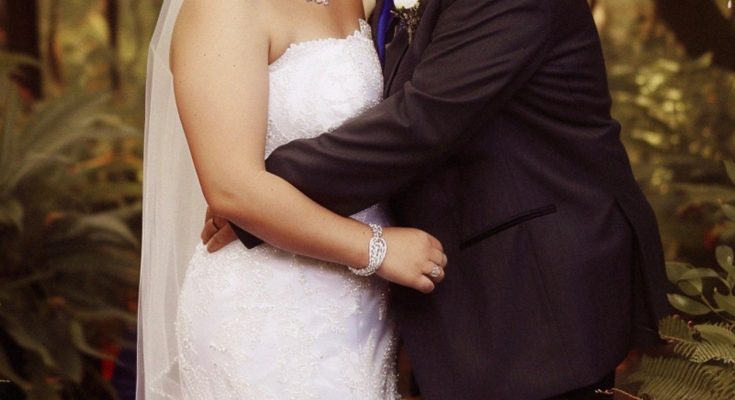
My husband Garrett had not given me a gift in three years, not even for my birthday. This lack of attention made me feel neglected and undervalued, and it sparked a plan that ended up spiraling out of control, threatening the very fabric of our marriage.
Our story began six years ago when we got married. Back then, Garrett was incredibly attentive. He would surprise me with flowers, plan romantic dinners, and we enjoyed long walks in the park every evening. But as time passed and life’s realities set in, these small but significant gestures began to wane and eventually stopped altogether.
One evening, hoping to reignite some of our old spark, I suggested we go out for dinner at Golden Dragon, our once-favorite restaurant. Garrett barely looked up from his phone and dismissed the idea, suggesting we order pizza instead. I masked my disappointment, agreeing to the simpler plan.
This pattern continued, with Garrett withdrawing more into his work and hobbies, leaving me feeling increasingly isolated. On my last birthday, I waited all day for Garrett to acknowledge the occasion. When he came home without so much as a card, my heart sank. I confronted him about forgetting my birthday, but his response was nonchalant. He said, “Gifts are a waste of money. You don’t need to get me anything either.” This indifference was painful, especially coming from the man who once made every occasion special.
As another birthday approached, my frustration and sadness morphed into resolve. I decided to teach Garrett a lesson about taking people for granted. My plan was simple but dramatic: I would create a scenario that made it seem like someone else was appreciating me since he wasn’t.
On the morning of my birthday, I acted as if it was just another day. Garrett left early for a meeting, and I headed to work with a mix of nerves and anticipation. At my office, I ordered a bouquet of roses and an expensive pair of earrings to be delivered to me. My coworkers were naturally curious and somewhat envious when the gifts arrived, enhancing the effect I desired.
Later that day, I asked my boss, Caleb, for a ride home, explaining that my car was in the shop. Caleb, aware of my marital struggles through previous conversations, reluctantly agreed. During the drive, I shared the details of my plan. Caleb was concerned, cautioning that it might backfire, but I was too deep into my scheme to back out.
When we arrived at my house, I made sure to thank Caleb loudly as I got out of the car, clutching my flowers and gift box. Garrett, who was home by then, saw us from the window. His expression changed instantly from surprise to suspicion.
I entered the house with a forced casualness, pretending the gifts were from a secret admirer. Garrett’s reaction was a mix of jealousy and anger. He demanded to know who gave me the gifts and why Caleb was dropping me off. I maintained my facade, hoping to elicit a realization from him about his neglect.
However, instead of reflecting on his behavior, Garrett stormed out to confront Caleb. He accused Caleb of having an inappropriate relationship with me. The situation escalated quickly, with Garrett physically confronting Caleb, who managed to drive away just in time.
Realizing the extent of the chaos I had caused, I broke down and confessed to Garrett that the gifts were from me, purchased in an attempt to make him jealous and aware of his neglect. The admission did not have the effect I hoped for. Instead of opening a dialogue, it drove Garrett away. He left the house without a word, leaving me alone with my guilt and fear of what I had possibly ended.
The hours that followed were agonizing. I debated whether to call him or give him space, but before I could decide, Garrett returned. He was calmer but still visibly upset. We sat down and had the most honest conversation of our marriage. Garrett admitted that he had been taking me for granted and apologized for his lack of attention. He explained that pressures at work had made him distant at home, not just with me but with everyone and everything he cared about.
I shared how lonely and unappreciated I had felt, emphasizing that while gifts were not necessary, the affection and thought behind them were what really mattered. We discussed how we could improve our communication and make more time for each other.
This painful experience became a turning point in our relationship. We agreed to work on our marriage actively, to not let routine and complacency pull us apart again. Garrett started to make small changes, like leaving work earlier so we could spend evenings together. I made efforts to express my needs more clearly, rather than harboring resentment.
As months passed, our relationship began to heal. We rediscovered the joy in our companionship, taking time to celebrate both big events and everyday moments. Garrett surprised me on our next anniversary with a thoughtful day planned just for us, reminiscent of our early days together.
This ordeal taught us both valuable lessons about love, attention, and the dangers of taking each other for granted. We learned that communication and small acts of kindness are the lifelines of a healthy relationship. Looking back, I regret the extremes to which I went to teach Garrett a lesson, but I am grateful for the wake-up call it provided to both of us.
What would you have done in this situation?



